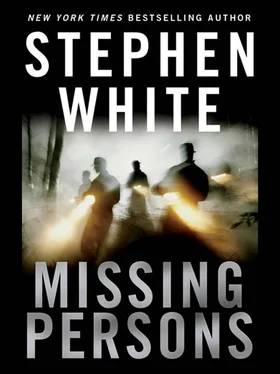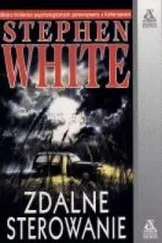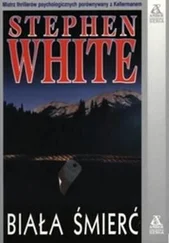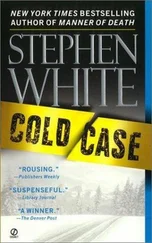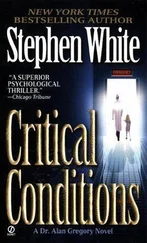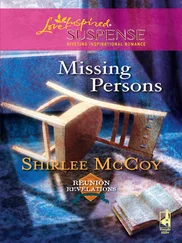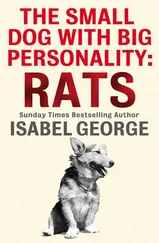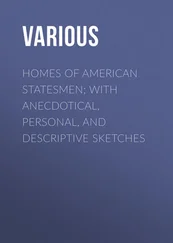Without much thought, I said, “I’m glad you found that…” I didn’t know how to end the sentence.
Raoul did. “On my own, you mean,” he said.
“Yes. Did you talk to this… Rachel?”
“Nobody at the chapel will tell me anything. But they know her, that’s clear enough. The minister is a guy with a fake British accent who prances around like he’s on holiday from his day job in the House of Lords. He acted really cagey when I mentioned Rachel’s name. I’ll find her tomorrow.”
“Diane?” I said, hopefully.
“I pray. But I’ll find Rachel, and she’ll help me find Diane. Despite the neon carnival and depraved World’s Fair ambiance of the place, Las Vegas feels like a small town. Money is ammunition here. That works in my favor. I’m well armed.”
“The police are uninterested?”
“ ‘Uninterested’ is a generous word.”
“And Venetian security?”
“I think they went ahead and looked at the videotapes of whatever happened while Diane was walking out of the casino. When she lost her phone.”
“Did you get the impression it seemed significant to them?”
“It raised an eyebrow or two. But they won’t tell me why.”
“What happens in Vegas stays in Vegas?”
“Like that. There’s one woman on the security team who wants to talk with me. I flirted with her a little, and I’m going to see if I can catch up with her later on when she gets off work. Her shift ends at eight.”
I tried to imagine Raoul’s frustration. His determination was apparent, but whatever he was doing to mask his frustration was admirable. I asked him, “Why aren’t you bugging me for more information about Rachel?”
“Diane wouldn’t want me to. She didn’t talk to me about her clients. One of the things she respects about you is how you’ve kept your mouth shut through all the… difficult situations you’ve been in over the years. I’m trying to respect what she respects.”
“I appreciate that. I’m in another difficult position right now. I’d really like to be more helpful, but Diane’s not the only one who’s…”
“Who’s what?”
“Mixed up with Rachel’s… problems. I’ve already told you more than I should.” I knew I sounded lame. If I were in Raoul’s shoes, I think I’d want to string me up by my thumbs.
In a tone that was intended not only to sound calm but also to communicate his increasing desperation, he said, “It’s a reprieve, not a pardon, my friend. As soon as I run into a dead end with this Rachel person I’ll be back in your face, insisting. Or worse.” At the end he managed a little laugh.
“I can’t wait,” I said.
“I have to go. Before my date with this security lady later I’m going to try to see if I can find any gamblers who remember seeing Diane at the craps tables last night. I hope that some of the same people will be playing again. I’ll be in touch. Adeu .”
“Adeu” is Catalonian for good-bye. Other than profanity, the only other Catalonian Raoul had taught me during the many years of our friendship was how to ask if there was a good bar nearby. At that moment, had I been on a beachfront up the coast from Barcelona, I would have been sorely tempted to try out the phrase.
I said, “ Adeu, Raoul.” But he’d already hung up.
After only a moment’s hesitation I opened the drawer to the file cabinet and withdrew the Kinko’s box that Bob had given me. Almost reverentially, I lifted the lid off the box, and raised the title page in my hands.
My Little Runaway
By R.C. Brandt
A quick, surreptitious glance at the open box revealed that the top sheet in the pile of paper that remained in the box wasn’t the beginning of Bob’s story. The second page was handwritten. In his familiar, neat, incredibly cramped script, Bob had written me a note.
Dr. Gregory,
If I’ve told you to go ahead and read this, this is the page that I want you to throw away. You can go ahead.
If I haven’t given you permission, this is where you should stop. Remember, I’m trusting you. I’ll tell you when.
Bob
His tiny scrawl seemed indecipherable, a missive intended for selected residents of Lilliput. I guessed that the first line was my name and the last line was Bob’s, but I couldn’t read the two lines in between all the way through, not at first. Only by holding the paper farther and farther from my eyes until I got it all the way out to arm’s length did the script come sufficiently into focus. “Dr. Gregory,” it read. “If I’ve told you to go ahead and read this, this is the page that I want you to throw away. You can go ahead. If I haven’t given you permission, this is where you should stop. Remember, I’m trusting you. I’ll tell you when. Bob.”
Reluctantly, I replaced both pages-the title page and the warning page-and fit the lid back onto the box.
What could be the harm of reading the damn thing?
Bob’s handwritten note had spooked me. How had he anticipated that a second caution to me about not reading his manuscript would be necessary? I decided to ask him. After checking my address book for the number, I called his home.
The phone rang and rang. No answering machine ever kicked in. As I hung up, I admitted to myself that I’d just done something that I rarely, if ever, did. I’d just tried to check in with a patient because they’d missed a session. What was my typical practice? I usually just let the issue simmer until the next scheduled appointment.
This time, that didn’t sound like a judicious plan.
I thought she was maybe fifteen years old, but she swore she was seventeen. I didn’t have to ask her age; she was apparently accustomed to protesting that she was older than she looked, and before I’d known her for a full minute she’d insisted she was seventeen, really. Her name was Jenifer Donald. The Jenifer was leavened with only one n , she’d pointed out-the result not of a spelling failure, but rather, I was guessing, of a momentary lapse in judgment by young parents who were intent on making sure their daughter went through life with a distinctive name.
Jenifer was from Clemson, South Carolina, and was in Boulder visiting her grandparents, who lived on the northern edge of Boulder’s original downtown near the intersection of Eighteenth and Pine. “They’re so cute. They really are,” she said, referring to her grandparents. “Some of my friends’ parents are as old as my grandparents. But my grandparents are just so cute.”
“Clemson? That’s where the college is?” I asked.
“The university,” she corrected. It was clear that the distinction was important to her. “It’s where I want to go. I’m hoping for a scholarship, for band. I’m a drummer. I have a good chance, I think. My PSATs were better than I expected. Much better. I take the SATs next month-I hope, I hope, I hope I do well. My parents and my grandparents want me to look at CU, too. I told them I would. That’s why I’m here.” She rolled her eyes. As if anyone would choose the University of Colorado over Clemson.
I found myself warmed by the unfamiliar melody of her lilting voice and loving the openness with which she’d greeted me at the front door of the brick two-story home. Jenifer’s pretty face was as welcoming as her manner. Her blond hair fell in a straight shot well past her shoulders. “What kind of doctor are y’all?” she asked. Her question wasn’t at all suspicious, merely friendly.
When she’d opened the front door, I’d introduced myself as “Dr. Gregory,” hoping the appellation would grant me some advantage with the kid who’d responded to the doorbell. I was already regretting having done it; I couldn’t very well tell her I was a clinical psychologist without leaving her with the implication that Bob had a reason to be seeing one.
Читать дальше
